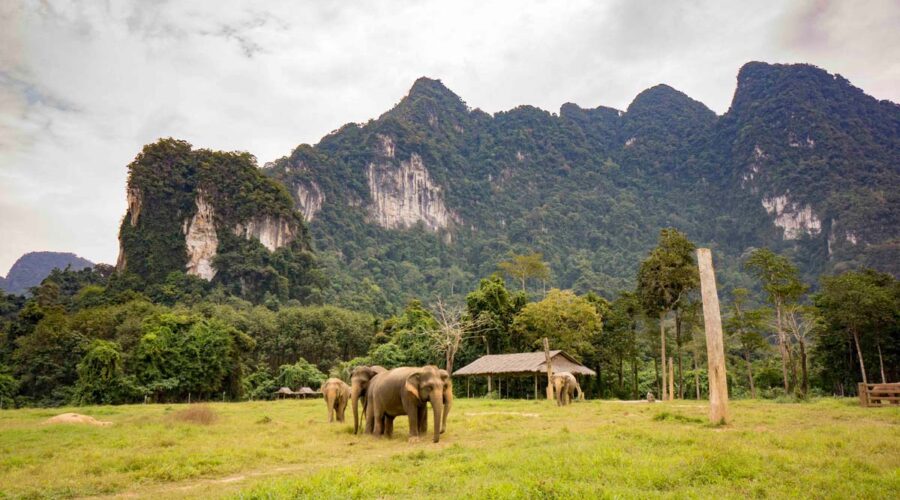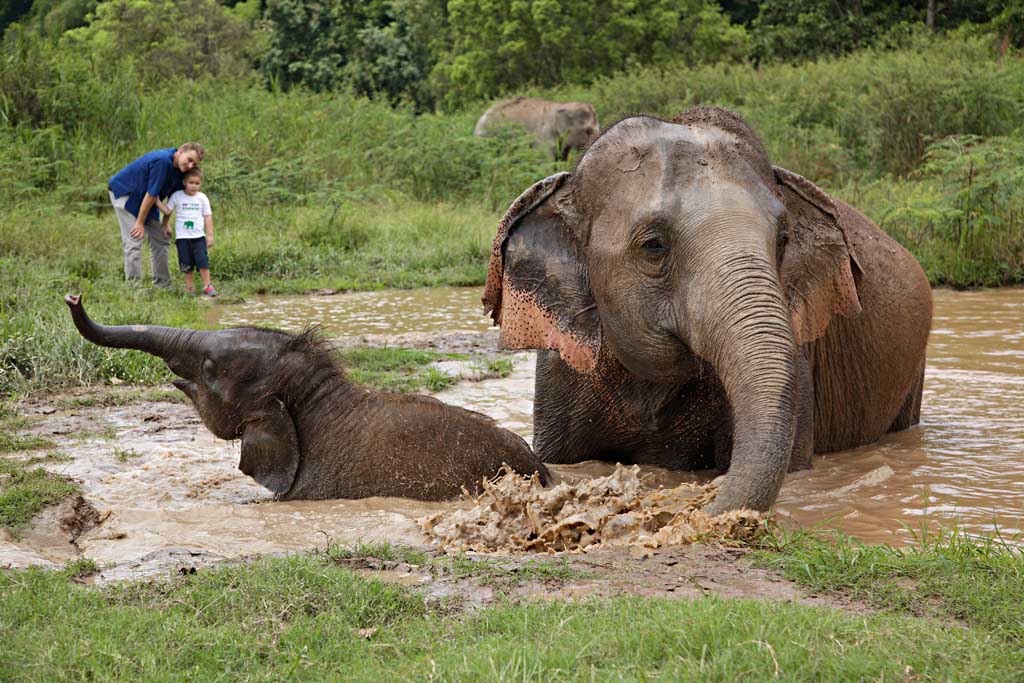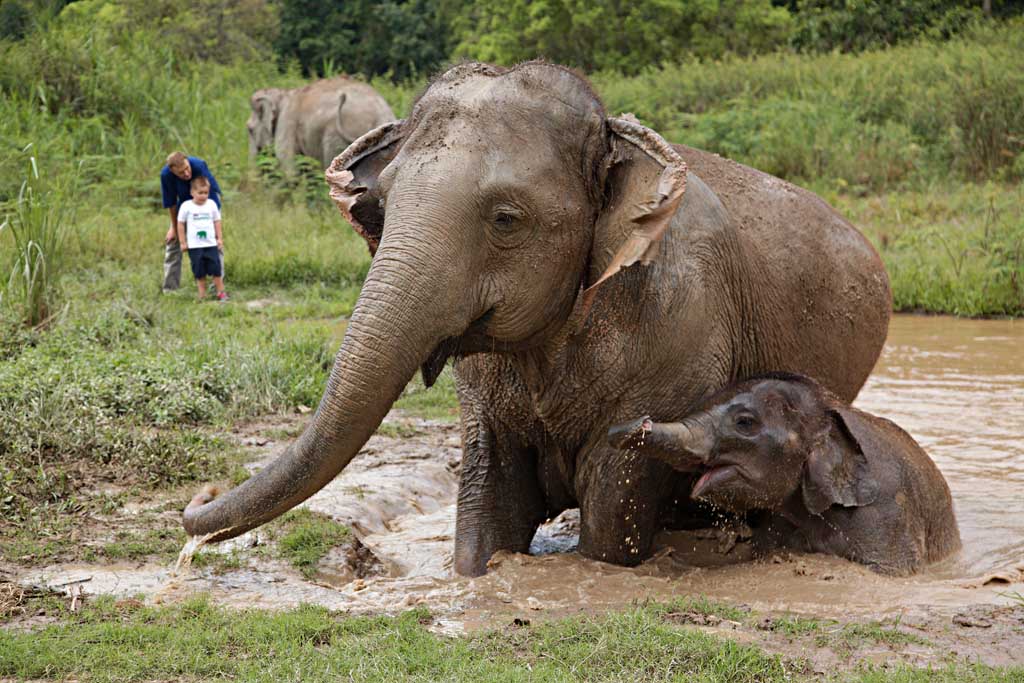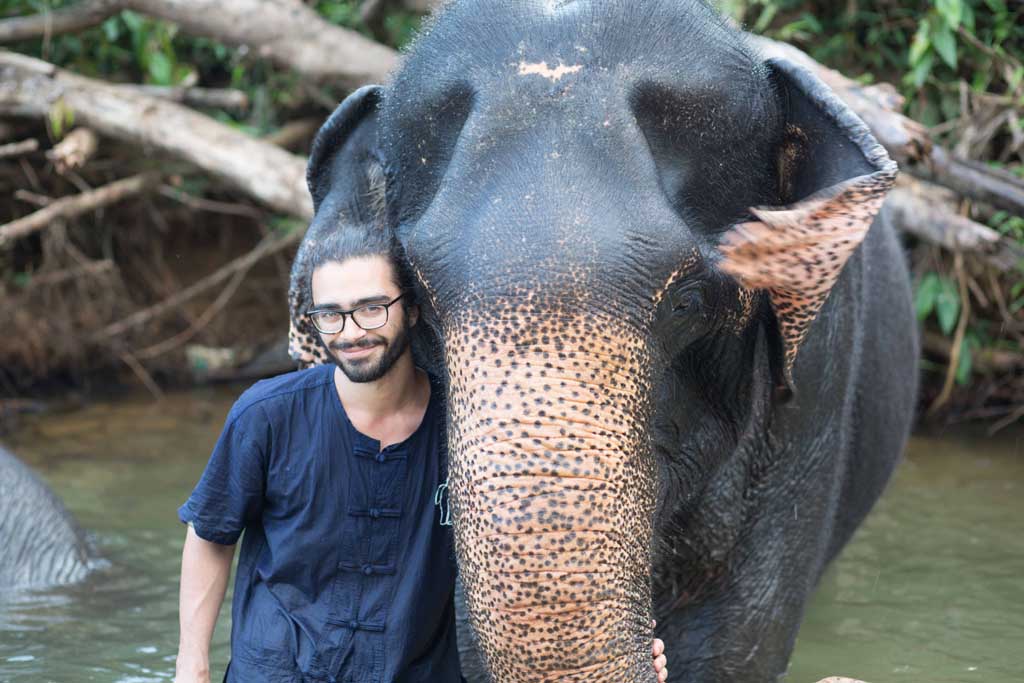Thailand’s ethical elephant encounters: our Top 7
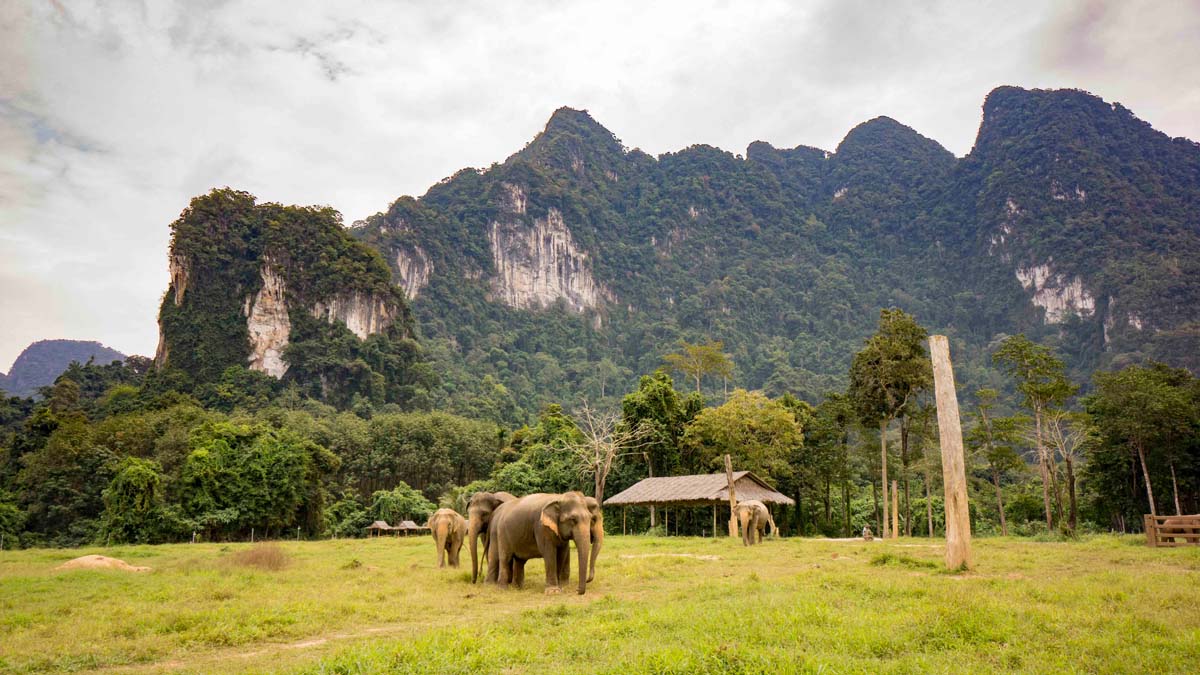
Elephants are an integral part of Thailand’s history and culture, and elephant encounters are usually high on most visitors’ bucket-list activities. These days visitors to Thailand have a greater respect for elephants and are keen to visit find sanctuaries that treat elephants with the kindness and respect they deserve. Here’s a guide to the best of Thailand’s ethical elephant encounters.
Elephants are an integral part of Thailand’s history and culture, and they’re also a major drawcard for tourists. In fact, elephants have been employed in the tourism industry since the late 1980s, when logging in Thailand was banned and mahouts and their families, elephants included, looked for new employment.
Over the years people have flocked to Thailand to go elephant trekking and watch them perform in shows. These clever creatures have been taught to paint pictures for tourists, shoot basketballs through hoops and even play a game of football.
But attitudes have changed considerably since the 1980s. Globally, we have a greater respect for animals – and we know a bit more about how these animals are trained. Animal welfare research has also highlighted that many of these activities are in fact cruel and demeaning.
While our fascination with elephants still holds, there is now a shift away from supporting elephant camps that offer trekking and shows. Thailand now has a growing number of wildlife sanctuaries where you can observe these gentle giants without riding them. At these sanctuaries, you can learn about their history, their welfare and in some places, volunteer to care for them. Here are a few good examples.
1. Elephant Nature Park – Chiang Mai
On the outskirts of Chiang Mai, this rescue and rehabilitation centre provides sanctuary for over 30 elephants, many of them victims of mistreatment. The park offers a wide range of programs for visitors, from one-day visits to seven-day volunteer programs.
On a single day visit, you’ll learn how to care for elephants and simply watch them being elephants, interacting in their herd, playing with each other, and bathing in the river.
The park also has a volunteer program for those wanting a longer, more intimate experience and don’t mind a bit or hard work, and there is even a program for visiting veterinarian nurses and student vets.
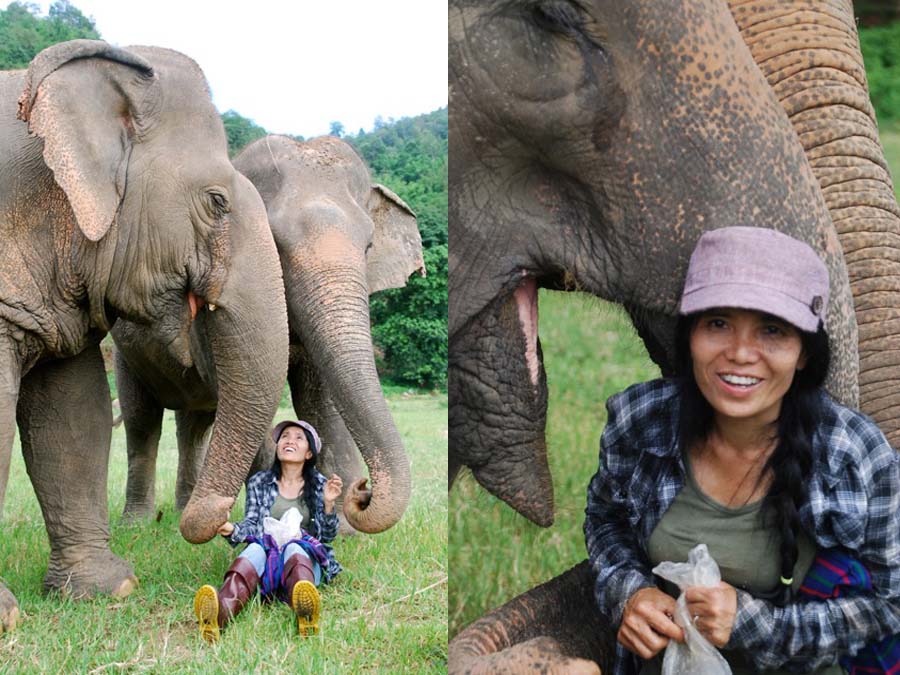
The park is now assisting in other areas around Thailand and Cambodia transforming former elephant trekking camps into sanctuaries. Projects in Surin, Kanchanaburi and Cambodia all welcome volunteers to join in on programs that range from a single day to seven days. elephantnaturepark.org
2. Elephant Haven, Kanchanaburi
Under the tutelage of Lek Chailert from Elephant Nature Park, this sanctuary at Sai Yok, 130 kilometres west of Bangkok, was formerly an elephant trekking camp. Lek encouraged the owners to take the chains off, and Elephant Nature Park are now assisting the new park by organising day trips and overnight stays, where visitors can walk with elephants and watch them play in the mud and swim in the river.elephantnaturepark.org
3. Golden Triangle Asian Elephant Foundation, Chiang Rai
Located at the Anantara Golden Triangle Resort, this camp provides a home and employment for over 30 former street elephants, mahouts and their families. Guests at the resort can help with the daily care of the elephants, helping to bathe them in the river, and take part in a forest trek with elephants, accompanied by a resident veterinarian or biologist. helpingelephants.org
4. Phuket Elephant Sanctuary, Phuket.
This sanctuary was founded through a partnership with Mr Montri Todtane, a Phuket elephant camp owner, conservationist Lek Chailert, founder of Save Elephant Foundation, and Louise Rogerson, founder of EARS Asia. Lek Chailert also founded Elephant Nature Park in Chiang Mai.
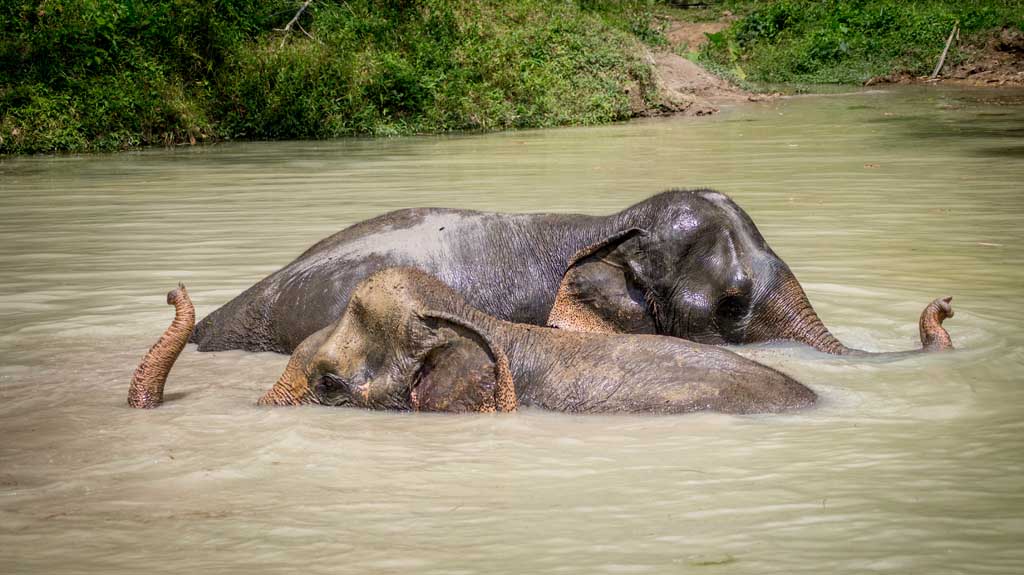
“We offer a retirement home for sick, injured, tired, or old elephants who have previously worked hard for tourism entertainment or in the logging industry.”
Here, visitors can feed, walk with, and observe the resident elephants as they roam throughout the sanctuary, socialise and bathe and cover themselves in lovely thick mud; as they would in the wild. phuketelephantsanctuary.org
5. Phang Nga Elephant Park, Phang Nga.
The family that runs this elephant park has a very close relationship with elephants, having looked after them at home and working in their fields for over 150 years. Here, visitors can bath, feed and ride the elephants bareback.
“We will not tolerate practices such as elephant dancing and circus tricks, and work hard to create public awareness and to help improve the care and wellbeing of Thailand’s elephants.”
“We believe passionately in human-elephant interaction and educating of our visitors about the significance of the elephant in Thai culture. Many of our elephants were previously in the logging industry and they and their mahouts now enjoy a happy and fulfilling life with us.” phangngaelephantpark.com
6. Elephant Hills, Khao Sok
This eco-resort and elephant sanctuary is within the Khao Sok National Park, on the Thai peninsula, with transfers available for a two to three day ‘safari’ from resort locations on both the east and west coast, including Phuket, Krabi, and Koh Samui.
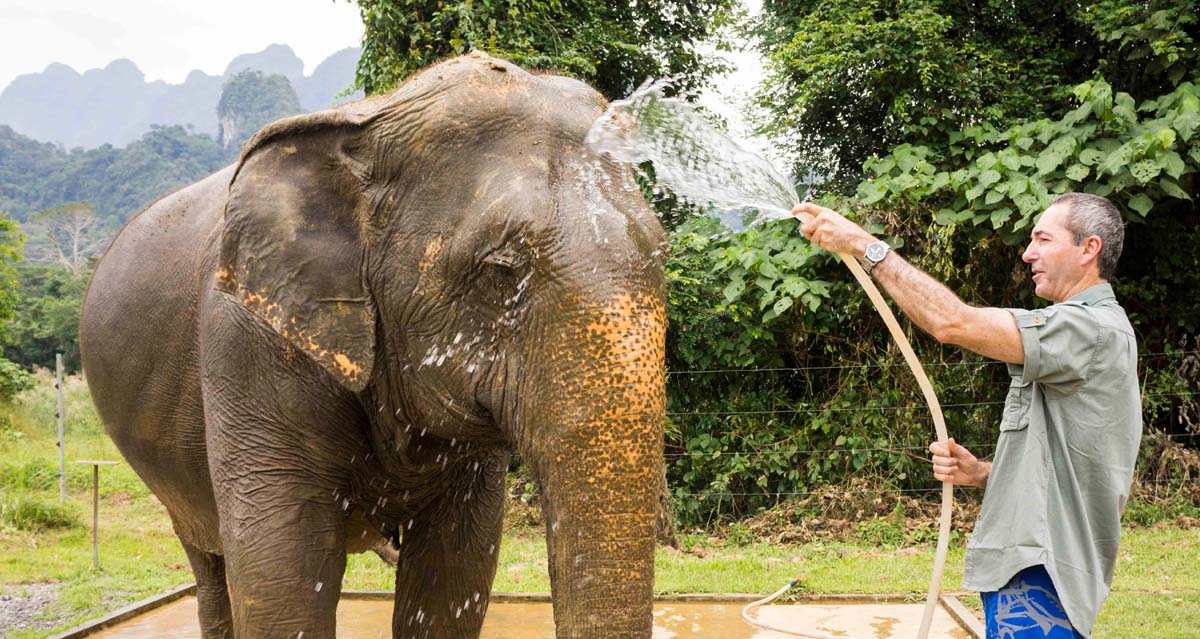
Accommodation is in luxury safari-style tents, and the activities you can participate in here will all teach you something about Thailand’s culture and ecology. This includes a presentation and film about the history and conservation of elephants, a cooking class, a cultural performance by kids from the local school (that the resort funds), a canoe safari and the Elephant Hills Elephant Experience where you’ll learn how the animals are taken care of. elephanthills.com
7. Elephant Seaside Retreat.
Visit a family of elephants at their seaside home. This former elephant trekking ‘camp’ has reformed, these days allowing its elephants to retire, favouring education and conservation over tourist rides. Visitors are given a lesson in elephant conservation before being able to feed them a few banana snacks.
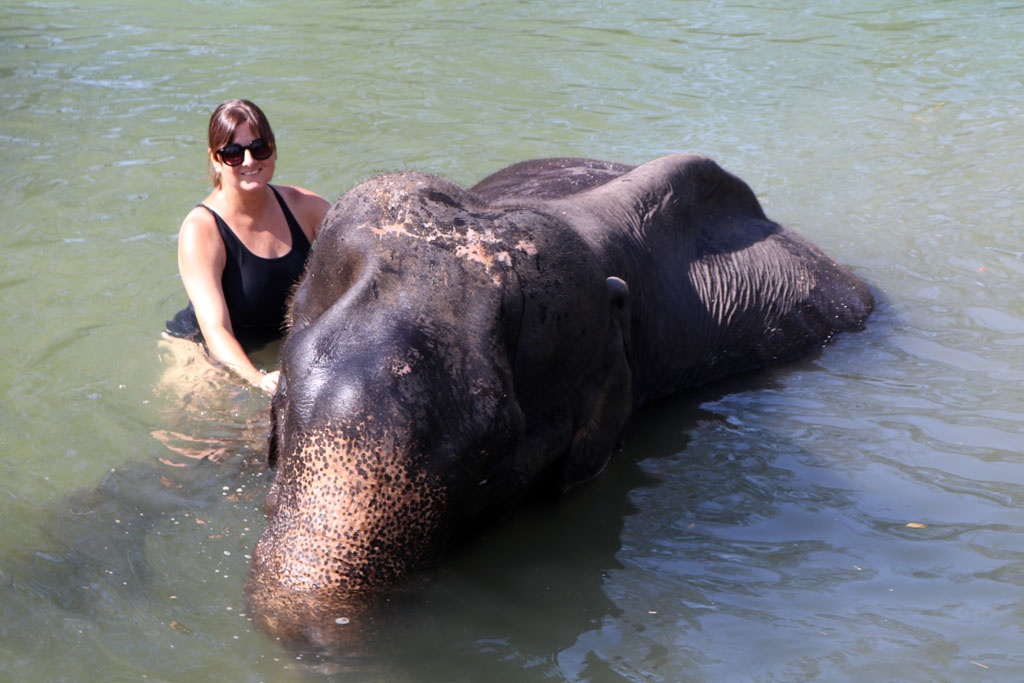 Then it’s a stroll to a nearby stream, where you can get into your swimmers, hop in the water and give them a scrub. After your elephant spa, you are given the option to contribute to the sanctuary’s mangrove conservation by planting a mangrove seedling, following by a snack of Thai coconut pancakes and rosehip tea. ecokhaolak.com
Then it’s a stroll to a nearby stream, where you can get into your swimmers, hop in the water and give them a scrub. After your elephant spa, you are given the option to contribute to the sanctuary’s mangrove conservation by planting a mangrove seedling, following by a snack of Thai coconut pancakes and rosehip tea. ecokhaolak.com
Source link : Thailand’s ethical elephant encounters: our Top 7

